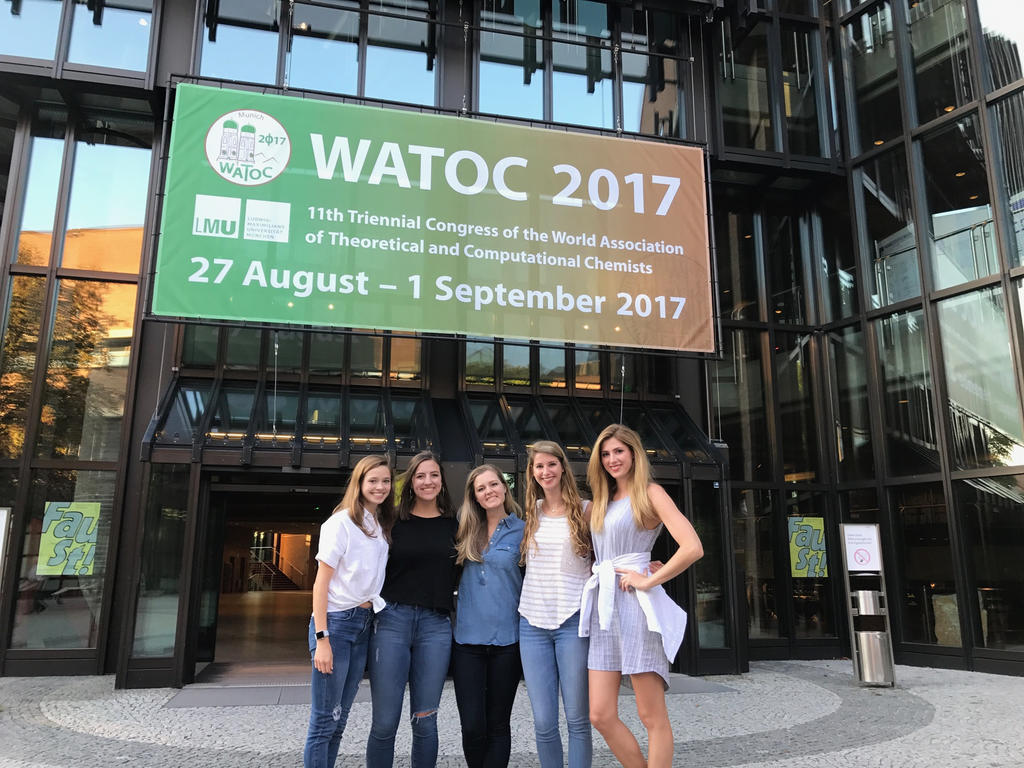Five students in Professor Mauricio Cafiero’s chemistry lab—Emily Harrison ’18, Samantha Jelinek ’18, Caroline Magee ’18, Madison Perchik ’19, and Rebecca Evans ’19—presented their research Aug. 27- Sept. 1 at the World Association of Theoretical and Computational Chemistry (WATOC) conference held in Munich, Germany. More than 1,500 participants gathered for talks, an industry symposium, and computational and theoretical chemistry poster presentations.
“Because we were the only American undergraduate group there, I think that really highlights the opportunities that you get at Rhodes,” says Evans.
The Rhodes group collaborated on a project focusing on enzymes that produce dopamine, which plays a key role in functions such as mood, movement, and coordination. Each student observed a different enzyme in the dopamine pathway, and Magee explains, “Computer models were used to determine which chemical structures are most likely to successfully interact with an enzyme that is associated with medical conditions such as Parkinson’s disease, obesity, and cataracts.” Research has potential to find novel drugs that could treat such conditions.
Cafiero, who is the James H. Daughdrill Professor in the Natural Sciences, says, “Seeing students present at major conferences like this is truly the highlight of my job here at Rhodes. When my students can hold their own against scientists from all over the world in a session geared towards graduate students and postdocs, it really drives home the fact that we have wonderful students here and the resources to train them very well.”
Cafiero was contracted last year as a consultant and expert witness on a drug patent case, and two thirds of the trip’s funding came from his legal consultant earnings, which he decided to use for support of student research. Other funding for the trip came from academic affairs and the chemistry department.
“My college experience has been so enriched by Prof. Cafiero’s compassionate advising, thoughtful teaching, and, of course, the opportunities he has given me through research,” says Perchik. “I will always hold dear the tools I learned from the conference and the cultural experiences that we had in various parts of Germany. I will never forget the feeling that I got when post-docs from all over the world mistook me and my fellow researchers as graduate students and MD/PhD students!”
Adds Magee, “Everyone returned to Rhodes with a new sense of motivation and definitely a new perspective about how our work at Rhodes not only adds to our own education, but can also add to a greater understanding in the international community of scientists.”
By Meg Jerit ’20
